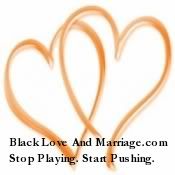 Male privelege is life without the fear of being raped... also, not having to take into account the importance of personal safety for females. Basic personal safety training can help females recognize warning signs and set healthy boundaries, thereby preventing date rape, druken rape, and domestic abuse...or at least awareness of steps to take when any of these has occured or is about to occur. Our #1 priority should always be to self, keeping ourselves safe is very important.
Male privelege is life without the fear of being raped... also, not having to take into account the importance of personal safety for females. Basic personal safety training can help females recognize warning signs and set healthy boundaries, thereby preventing date rape, druken rape, and domestic abuse...or at least awareness of steps to take when any of these has occured or is about to occur. Our #1 priority should always be to self, keeping ourselves safe is very important.The following is information from http://www.duhaime.org/CrimeandSafety/LawArticle-53/Date-Rape.aspx
Some studies suggest that up to one in every four women are victimized by some form of sexual assault in their lifetimes.
In an emergency, the human brain is like a filing cabinet and it can quickly recall information once learned. The purpose of this article is to give you a "rape" file so that if you ever need it, you'll have some information to respond with.
Girls must be assertive and say "no" when they mean "no." Girls are often raised to treasure other people's feelings and that means not hurting them. Sadly, this also leads some girls to stay quiet even if they are in danger. Assertiveness is different from rudeness (which is aggressive). Being assertive simply means saying directly and clearly what you mean.
A simple "no" can resolve most unwanted touches. You could say:
"Stop, please. I'm not enjoying this."
"Get your hands off me."
"I don't want to have sex."
"I said "no" and I mean "no"."
Another difficulty is that many girls feel they should be in a relationship, mostly because of peer pressure or because of strong messages left by teen television shows. "Having a boyfriend is cool!" This might even keep them in an abusive relationship. Just remember: being single is great too!
How do you know if your relationship is a good one? In a healthy relationship, your boyfriend will be a good listener and you will feel free to talk about your feelings with him. You will feel like his equal and not like his subordinate. You will laugh and have fun together and he will make you feel good about yourself. If you have a misunderstanding, he will want to work things out with you.
Signs of a bad relationship include jealousy or possessiveness, feeling bad about yourself, criticism or being picked on. In a bad relationship, your boyfriend often ignores or interrupts you. You don't trust your boyfriend and he may try to control you. He may even pressure you into staying in the relationship. He could be violent or frequently display anger. He may show contempt towards women such as calling them "bitches" or saying things like "they should stay at home." He may be nice to you when you're alone but a jerk when his friends are around. If he forces you to have sex, get out of the relationship (at the very least. You should also talk to the police about the assault). Other bad signs are a guy who drinks too much or who likes to get stoned on drugs.
Remember: you don't have to date anybody. There is no law that says that you have to date. It's your heart and body. Treasure it and protect it. Think about sex and what it means to you. Decide what your values are and how far you want to go before you get into a situation with your date. Listen to your feelings. If you just want to cuddle, say so! You have the right to say "no" to sexual contact. Any sexual contact without your permission is a crime.
Here are some final tips on avoiding date rape:
Avoid parties or groups where alcohol or drug use is excessive. Studies of date rape show that 75% of the date-rapists, and 55% of the victims, had been drinking or taking drugs before the rape occured.
Avoid people who make you feel uncomfortable.
If you're going to a party, establish a buddy system with a friend; watch out for each other.
When you're leaving, don't announce that you're walking alone. Try to walk home with a friend or in groups.
Don't give a whole bunch of information about yourself to a person you just met.
People can't read you mind: if someone's doing something to you that you're not comfortable with, say "no."
Always have some taxi money in your pockets in case you want to go home.
Never walk home through deserted areas like parkland or railroad tracks.
Do not hitchhike.
More info: http://www2.truman.edu/~aweitz/prevent_date_rape/
I originally published this to Myra Speaks on Facebook, February 11, 2011.












